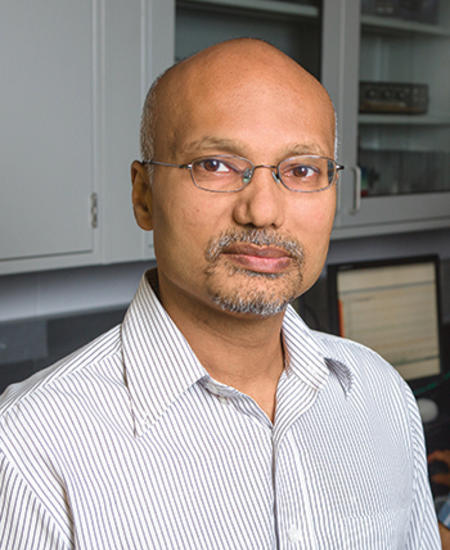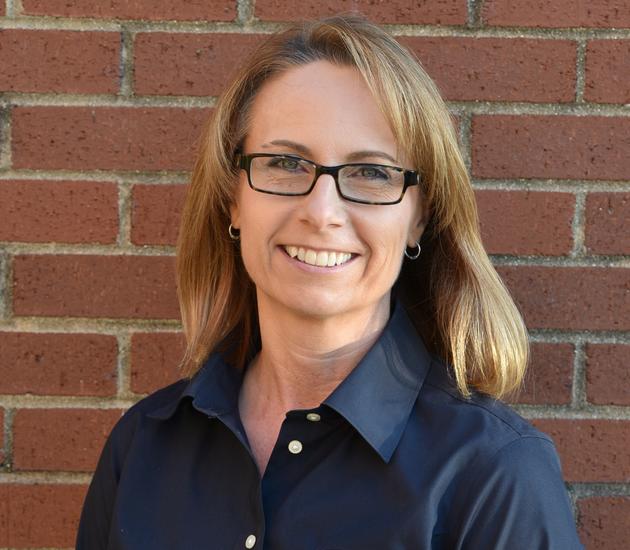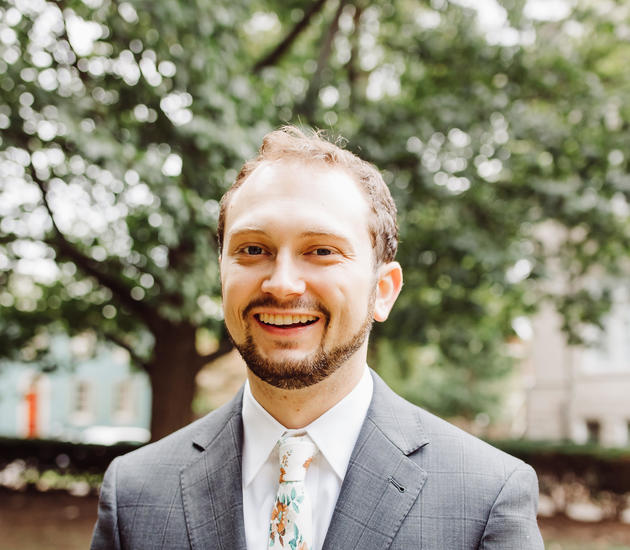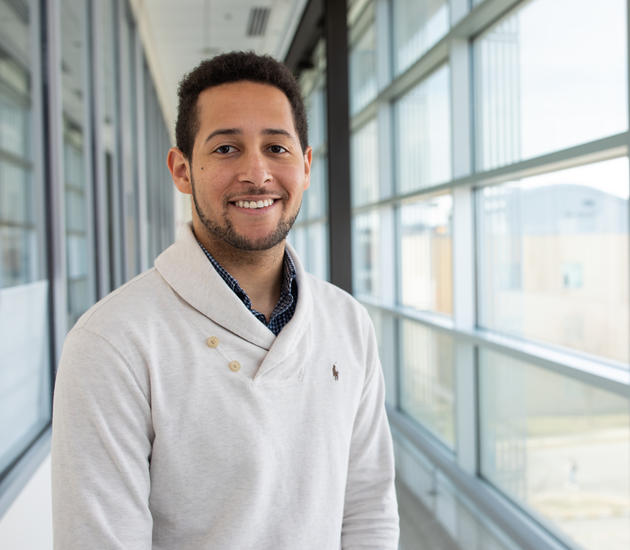With all due respect to Captain James Kirk from the famed Star Trek series, Sridhar Sunderam disagrees that space is the “final frontier.” Rather, the territory with the greatest potential for discovery lies closer to us than the universe’s uncharted outposts. In fact, it’s closer than our atmosphere, the environment and even our own skin. What could that be?
“The most fascinating thing about the brain is that it’s right here,” Sunderam says, pointing to his head, “and yet we know very little about it. When it comes to understanding the way we live—and defining how we are going to live in the future—intracranial intelligence matters at least as much as extraterrestrial intelligence.”
Sunderam, an associate professor in the F. Joseph Halcomb III, M.D. Department of Biomedical Engineering, directs the Neural Systems Laboratory. In 2015, he and his collaborators from the University of Rhode Island and the University of Oklahoma received a $6 million award from the National Science Foundation’s Experimental Program to Stimulate Competitive Research (EPSCoR) to develop innovative and broadly accessible tools for gaining insight into how the nervous system functions in health and disease. Sunderam’s team, which includes faculty in biomedical engineering and biology, is using imaging and diagnostic tools—including a novel device developed by the Rhode Island team—for understanding brain rhythms in relation to movement, sleep, epilepsy and autonomic function.
“It took me years to realize that sleep quality plays an important role in seizure generation,” he explains. “In epilepsy therapy, seizure control is viewed as the holy grail. But the truth is that seizures affect sleep, behavior and cognition and poor sleep can promote seizures; improving sleep may therefore improve seizure control. My goal is to enable a comprehensive therapy in which we model an individual’s sleep patterns and their interactions with seizures, and then program therapy based on this model to simultaneously improve sleep and reduce seizures.”
Because EPSCoR grants contain educational objectives beyond the research, Sunderam has incorporated innovative programs directed toward junior faculty, postdoctoral scholars and students to engage in brain research.
“In September, we began a seed grant program that encourages junior faculty and postdoctoral scholars at UK, Rhode Island and Oklahoma to collaborate with each other on projects related to the brain. Also, we also had three students from Kentucky State University spend two months with us over the summer. They got to do experiments in neural engineering and a couple of programming projects. The hope is that they will continue refining their work during the school year.”
The son of a sailor, Sunderam completed his undergraduate education in his native India and subsequently applied to graduate programs in the United States and Europe.
“I wanted to travel,” he says, smiling, “but I couldn’t be a sailor like my dad. I had to find another way.”
While working on his Ph.D. in chemical engineering at the University of Kansas, Sunderam came across a flyer for a company called Flint Hills Scientific that was advertising intern positions for projects related to brain signal analysis.
“At that time, my Ph.D. work centered on how bones heal from surgical procedures,” he recalls. “Bones take a long time to heal. I would take an image and have to wait at least another week or more until I took another. Working on the brain was a completely different dynamic. We were working on algorithms that could detect seizures from the EEG and apply electrical stimulation to the brain to stop them. It was fascinating stuff.”
The most fascinating thing about the brain is that it’s right here, and yet we know very little about it. When it comes to understanding the way we live—and defining how we are going to live in the future— intracranial intelligence matters at least as much as extraterrestrial intelligence.”
That was it for bone research. Sunderam stayed at Flint Hills Scientific for six years before taking on research faculty positions in neural engineering, first at George Mason University and later at Penn State. In 2009, eager to begin his own lab and continue his research, Sunderam was hired to join the faculty of the then-named Center for Biomedical Engineering (now a department) at UK.
“What I liked about UK is that there seemed to be a lot of interest in collaboration, which is genuinely feasible because the hospital is right here. Testing our research ideas clinically is a lot easier because of the proximity,” he shares.
Sunderam also confides that he appreciates UK’s basketball tradition and enjoys being on a campus where basketball interest is high. In fact, Sunderam considers himself something of a good luck charm: three of the four schools he has studied or worked in have made the NCAA Tournament’s Final Four while he was present (Kansas in 2002 and 2003, George Mason in 2006, and Kentucky four times since 2011). In 2012, UK’s men’s team won the national championship.
“One championship and four Final Fours since I arrived—I’d say I’m doing quite well!”




